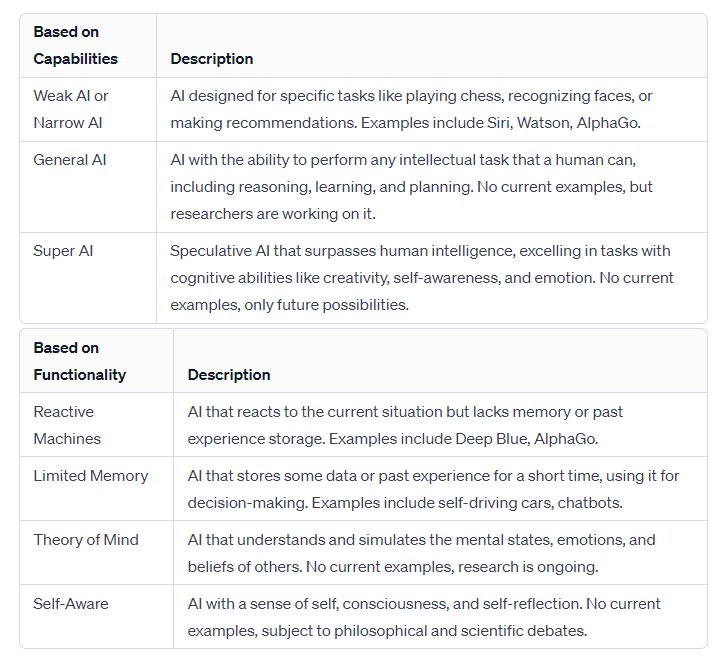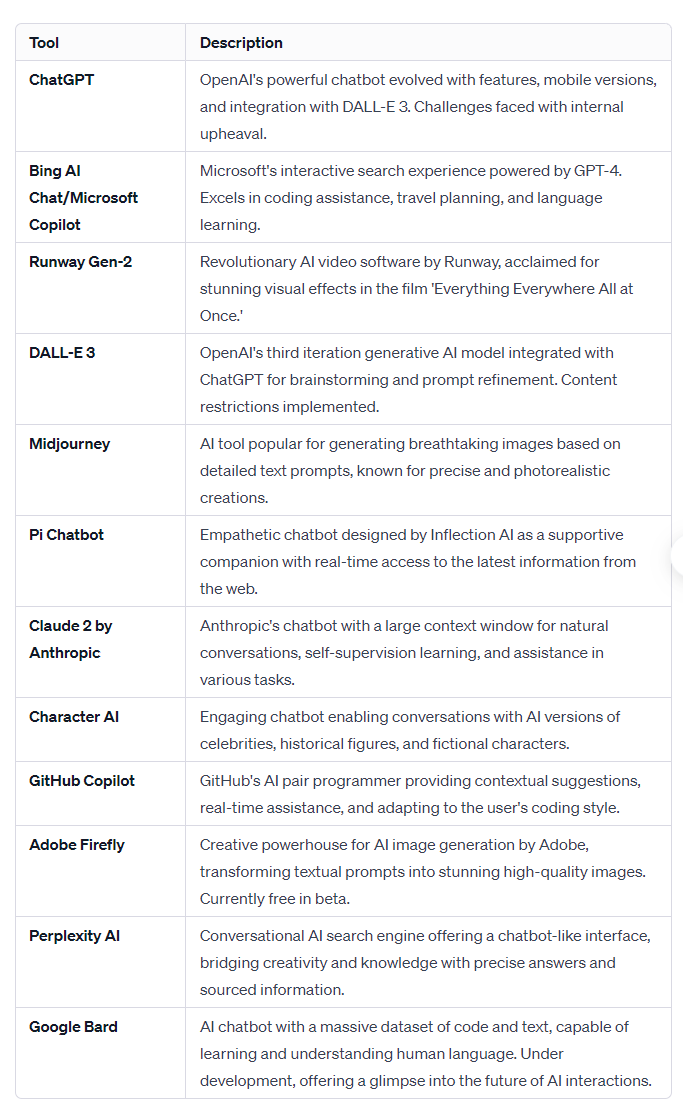Science & Technology
Artificial Intelligence
- 29 Dec 2023
- 4 min read
For Prelims: Artificial Intelligence (AI), Ethical AI, Machine Learning, Large Language Models, Global Partnership on Artificial Intelligence, Artificial Intelligence Mission
For Mains: Boosting AI innovation and startups, Artificial Intelligence Technology.
Why in News?
The year 2023 has been a landmark year for Artificial Intelligence (AI) innovation, showcasing incredible advancements in various AI tools. These advancements offer a glimpse into the expanding potential of AI, particularly in creativity, conversation, and visual content generation.
- However, this surge in development emphasizes the critical need for enhanced oversight to ensure ethical AI use and equitable access to its benefits.
What is Artificial Intelligence?
- About:
- AI is defined as the ability of machines and systems to acquire and apply knowledge and to carry out intelligent behaviour.
- The term "Artificial Intelligence" was coined by John McCarthy, an American computer scientist and cognitive scientist. He was one of the founders of the discipline of AI.
- It includes technologies like machine learning, Deep Learning, Big Data, Neural Networks, Computer vision, Large Language Models etc.
- The ideal characteristic of artificial intelligence is its ability to rationalize and take actions that have the best chance of achieving a specific goal.
- AI is defined as the ability of machines and systems to acquire and apply knowledge and to carry out intelligent behaviour.
- Types of AI:
- Principles for the Ethical Use of AI:
- AI initiatives should align with established ethical principles, human rights, and societal values to ensure responsible technological advancement.
- Prioritize the positive impact of AI on individuals, communities, and society, emphasizing responsible use for the greater good.
- Design AI systems to be transparent and explainable, allowing users and stakeholders to understand operations and decision-making processes, fostering trust and accountability.
- Mitigate biases in AI algorithms to ensure fair outcomes, preventing discrimination based on race, gender, ethnicity, or socioeconomic status.
- Uphold individuals' privacy rights by responsibly handling personal data, obtaining explicit consent, and complying with relevant privacy laws and regulations.
- Establish clear lines of accountability for developers and organizations deploying AI systems, with mechanisms to address errors or harmful impacts.
- Develop and utilize AI technology to enhance human well-being, address societal challenges, and contribute positively to global progress, economies, and environmental sustainability.
- AI initiatives should align with established ethical principles, human rights, and societal values to ensure responsible technological advancement.
- Major AI Tools:
- India's Initiatives Related to Artificial Intelligence:
UPSC Civil Services Examination, Previous Year Questions (PYQs)
Prelims
Q. With the present state of development, Artificial Intelligence can effectively do which of the following? (2020)
- Bring down electricity consumption in industrial units
- Create meaningful short stories and songs
- Disease diagnosis
- Text-to-Speech Conversion
- Wireless transmission of electrical energy
Select the correct answer using the code given below:
(a) 1, 2, 3 and 5 only
(b) 1, 3 and 4 only
(c) 2, 4 and 5 only
(d) 1, 2, 3, 4 and 5
Ans: (b)






